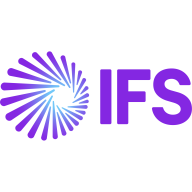

SAP Business One and IFS Cloud Platform are both competing in the ERP solutions category, catering to different market segments. SAP Business One has the edge for small to medium enterprises due to its cost-effective pricing model, while IFS Cloud Platform is advantageous for larger enterprises with its extensive scalability and comprehensive features.
Features: SAP Business One offers robust features including finance and basic logistics functions, document searching, and multi-currency handling which is particularly useful in markets like Turkey. IFS Cloud Platform provides an easy-to-navigate user interface, a service catalog with incident management, and a distribution module, all tailored to fit large enterprise needs with comprehensive service management.
Room for Improvement: SAP Business One could improve its licensing flexibility, as the current requirement to assign licenses to specific users may lead to inefficiencies. IFS Cloud Platform's initial setup cost and complexity can be a barrier, and simplifying integration with third-party systems could enhance user experience. Additionally, improving user-friendly customization options would offer a more tailored experience for users.
Ease of Deployment and Customer Service: SAP Business One is known for its straightforward setup process, making it accessible for SMEs. Its customer support is dependable, with good documentation available. IFS Cloud Platform, while requiring a more complex deployment, comes with a comprehensive service catalog and responsive customer assistance, ensuring support for large-scale implementations.
Pricing and ROI: SAP Business One presents a cost-effective solution with a perpetual licensing model plus annual maintenance fees, offering a satisfactory return on investment for smaller businesses by streamlining operations and reducing costs. IFS Cloud Platform's user-based pricing is higher initially but its extensive features justify the cost, providing ROI through enhanced operational efficiency and decision-making, making it a worthwhile investment for larger enterprises.
The previous user left the company without sharing their password, so at that time I need to log those particular issues or reset the password; the facility is not available in the current system, and I have to raise tickets, waiting for updated passwords, which is very critical.
When the system or solution has a failure unrelated to the database, they become lost.
Through the SAP portal, we can access direct support, which includes notes and a massive community for resources.
IFS Cloud Platform has standard functionalities that follow the standard supply chain management processes, and it is easy to customize or configure.
SAP Business One is not very scalable, as it is aimed at medium to small-scale industries.
If your company is looking for an ERP to run end-to-end business, this is the solution.
The scalability of SAP Business One is very high.
Now, with the drastic developments especially in the cloud applications known as Arena on IFS Cloud Platform, it has improved tremendously.
I rate the stability of SAP Business One an eight out of ten.
There is not much available online, and the documentation availability is on the lower side compared to other products, especially Maximo.
They are working on IFS AI, but we have not explored much into that yet, and if they want to keep their competitive edge, that is an area they need to concentrate on.
The solution lacks scalability as it targets medium to small-scale industries.
They also need to plan for integrating a small HR or payroll module.
Costing audits are required, but this is not available in SAP Business One.
It is expensive compared to other modules or ERPs.
The cloud feature in IFS Cloud Platform is predominantly valuable, especially the enterprise asset management module, which IFS has very good business into, along with strong finance, project management, and supply chain management modules.
There are fewer fields on the user screen compared to other products.
The general ledger, balance sheet, trial balance, cash flow statement, and all other reports are updated simultaneously.
Regarding reporting capabilities, SAP Business One provides in-built reports and allows us to use crystal reports, which we can customize and develop our own reports alongside running SQL queries with the query generator to create SQL reports.
One of the biggest advantages of SAP Business One, especially in the public cloud, is that many features are standardized, which reduces the need for customization.
| Product | Market Share (%) |
|---|---|
| SAP Business One | 3.2% |
| IFS Cloud Platform | 2.5% |
| Other | 94.3% |


| Company Size | Count |
|---|---|
| Small Business | 14 |
| Midsize Enterprise | 9 |
| Large Enterprise | 10 |
| Company Size | Count |
|---|---|
| Small Business | 35 |
| Midsize Enterprise | 18 |
| Large Enterprise | 20 |
IFS is the world’s leading provider of Industrial AI and enterprise software for hardcore businesses that make, service, and power our planet. Our technology enables businesses which manufacture goods, maintain complex assets, and manage service-focused operations to unlock the transformative power of Industrial AI™ to enhance productivity, efficiency, and sustainability. Industrial AI is IFS.ai.
IFS Cloud is a fully composable AI-powered platform, designed for ultimate flexibility and adaptability to our customers’ specific requirements and business evolution. It spans the needs of Enterprise Resource Planning (ERP), Enterprise Asset Management (EAM), Supply Chain Management (SCM), Information Technology Service Management (ITSM), and Field Service Management (FSM). IFS technology leverages AI, machine learning, real-time data and analytics to empower our customers to make informed strategic decisions and excel at their Moment of Service™.
The SAP Business One application offers a way to manage your entire business – from accounting and financials, purchasing, inventory, sales and customer relationships, and project management, to operations and human resources. SAP Business One helps you to streamline processes, gain a greater insight into your business, so that you can act fast and make decisions based on real time information, to help you drive profitable growth.
We monitor all ERP reviews to prevent fraudulent reviews and keep review quality high. We do not post reviews by company employees or direct competitors. We validate each review for authenticity via cross-reference with LinkedIn, and personal follow-up with the reviewer when necessary.